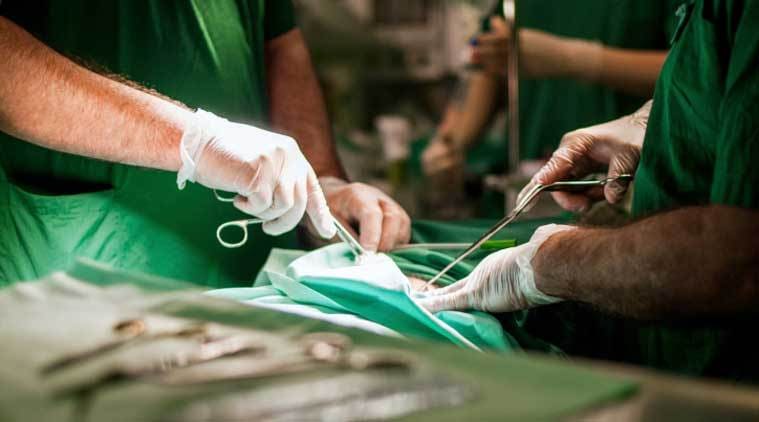It has been estimated that nearly 10 million women worldwide have received mesh implants to treat weakening pelvic muscles and alleviate urinary incontinence. Roughly 10-15% have suffered complications.

By Sheila Kaplan and Matthew Goldstein
The Food and Drug Administration on Tuesday ordered the two remaining medical device companies selling surgical mesh for the repair of pelvic organ prolapse to stop all sales and distribution in the United States.
It is the most stringent action the FDA has taken in the lengthy legal and medical battles over vaginal mesh, a synthetic product that has been implanted in millions of women to strengthen weakened pelvic muscles that can cause the bladder, the uterus and other organs to sag into the vaginal area.
The agency issued the decision against the two companies, Boston Scientific and Coloplast, at a time when multimillion-dollar verdicts against manufacturers of the devices continue to be awarded or upheld on appeal.
Litigation over pelvic mesh, also called transvaginal mesh, ranks as one of the largest mass tort cases in the nation’s history in terms of claims filed, number of corporate defendants and settlement dollars. Seven medical device manufacturers, including Boston Scientific and Johnson & Johnson, are paying nearly $8 billion to resolve the claims of more than 100,000 women.
For years, women and legal advocates have tried to persuade the FDA that the pelvic mesh implant causes harm. As the number of serious complications increased significantly, the FDA reclassified this type of pelvic mesh as high risk in 2016 and told manufacturers to submit more evidence that the devices were safe and would benefit patients with the condition.
In announcing its decision Tuesday, the FDA said that Boston Scientific and Coloplast, a Danish company, had not demonstrated a reasonable assurance of safety and effectiveness for the devices.
“In order for these mesh devices to stay on the market, we determined that we needed evidence that they worked better than surgery without the use of mesh to repair pelvic organ prolapse,” said Dr. Jeffrey Shuren, director of the FDA’s Center for Devices and Radiological Health. “We couldn’t assure women that these devices were safe and effective long term.”
Deborah Kotz, a spokeswoman for the agency, said the two medical device companies had 10 days to submit a plan for how the mesh devices will be withdrawn from the market.
Shanin Specter, a lawyer who has won numerous big jury verdicts against firms that manufactured the pelvic mesh, said the FDA should extend the decision to include mesh devices used for treatment of some urinary conditions.
“This is a good step forward,” he said. “But mesh used to treat stress incontinence also continues to devastate thousands of women, and the FDA should act decisively there, too.”
Boston Scientific, which had filed two applications for its devices, criticized the agency’s action. “We are deeply disappointed by the FDA’s decision on our premarket approval applications” for two products, said Kate Haranis, a spokeswoman for the company. The company, she added, believes that “the inaccessibility of these products will severely limit treatment options for the 50% of women in the U.S. who will suffer from pelvic organ prolapse during their lives.”
Haranis said its transvaginal mesh product portfolio accounts for roughly $25 million in sales annually, or about 1 percent of the company’s total sales. Its stock fell a little more than 4 percent on the news.
Lina Danstrup, a spokeswoman for Coloplast, said in an email that Restorelle DirectFix Anterior, the affected device, represents about 0.2 percent of group revenues. Coloplast’s stock also fell slightly Tuesday.
Gynecologists have been implanting surgical mesh to repair pelvic organ prolapse since the 1970s, and they began using it for transvaginal repair of the condition in the 1990s. The mesh is implanted in the vaginal wall; complications have included bleeding, pain, inflammation and dislodging or protrusion through the wall that can cause infection. Many women have required a second surgery to repair the damage.
Specter said the mesh device used in pelvic organ prolapse surgery tends to be larger and more injury-producing than the devices used in surgery to treat stress urinary incontinence.
But even the small mesh devices have an unacceptably high complication rate, he said, in the range of 5-15%. “There was never a need for these mesh products,” he said, noting there is an alternative surgical procedure using a patient’s own tissue.
The disputes over the safety of pelvic mesh have gone on for more than a decade. Until Tuesday, the FDA had never formally demanded that the products be taken off the market, but it had issued several warnings about the devices. The agency said earlier that it had received reports of more than 10,000 complaints of serious injury and nearly 80 deaths as of last year.
Women who have already had the devices implanted and are not having problems with them should not take any action, other than to continue regular doctor visits, Kotz, the FDA spokeswoman, said.
It has been estimated that nearly 10 million women worldwide have received mesh implants to treat weakening pelvic muscles and alleviate urinary incontinence. Roughly 10-15% have suffered complications, in some cases requiring the mesh to be removed.
In light of the litigation, warnings and complaints from women about severe pain and bleeding from mesh implants, some manufacturers, including Johnson & Johnson, had voluntarily stopped selling them.
Source: Read Full Article
